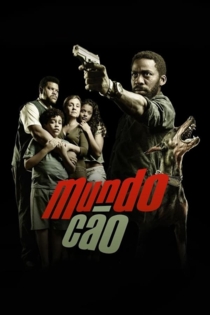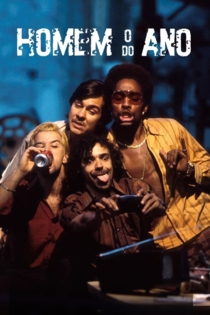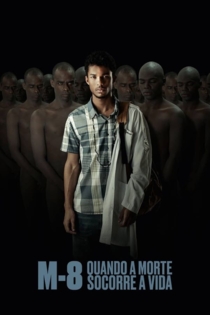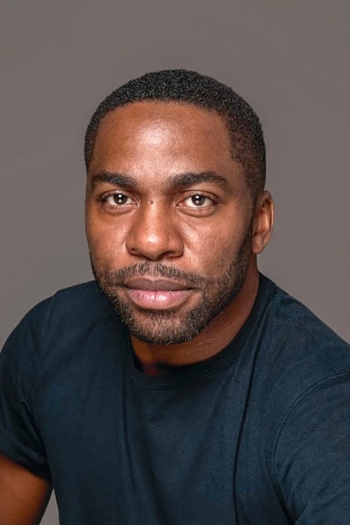
Lázaro Ramos
1978 (47 лет)O Beijo no Asfalto
Murilo Benício
Lázaro Ramos, Débora Falabella
When witnessing a hit, Arandir, a newly married banker, tries to succor the victim, but the man, almost dead, has only time to make one last request: a kiss. Arandir kisses the man, but his act is spotted by his father-in-law Aprígio and photographed by Amado Ribeiro, a tabloid reporter.
The Asphalt Kiss
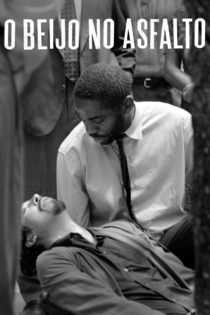
The Man Who Copied
Jorge Furtado
Lázaro Ramos, Leandra Leal
André, 19, lives in Porto Alegre, Brazil, and works as a photocopier operator. He likes to see his neighbor Sílvia with a pair of binoculars. She works selling clothes. Becoming attracted to her, he tries to get nearer, and goes to her shop to buy something, but finds out that he can't afford it. So he puts the photocopier to other uses, and begins to envisage fishy schemes to earn some money.
The Man Who Copied
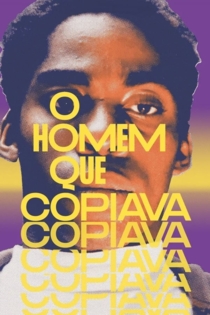
The Machine
João Falcão
Paulo Autran, Gustavo Falcão
In Nordestina, a small town lost in the Brazilian badlands, young Karina dreams of becoming an actress and leaving to explore the world. Before losing his love, Dona Nazaré’s son, Antônio, takes the first step in a kamikaze crusade to bring the world to Karina. For that, Antônio leaves town and announces, in a TV show that he will set off on a sensational adventure: a trip into the future, starting from Nordestina’s square. A story where dreams contradict reality, geographical and political conditions threaten to block life, and love plays the part of the transforming element.
The Machine

Carandiru
Héctor Babenco
Luiz Carlos Vasconcelos, Milton Gonçalves
When a doctor decides to carry out an AIDS prevention program inside Latin America’s largest prison: the Casa de Detenção de São Paulo - Carandiru, he discovers the victim of one of the darkest days in Brazilian History when the State of São Paulo’s Military Police, with the excuse for law enforcement, shot to death 111 people. Based on real facts and on the book written by Dráuzio Varella.
Carandiru
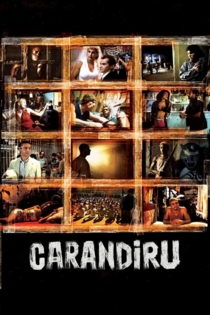
Saneamento Básico: O Filme
Jorge Furtado
Fernanda Torres, Wagner Moura
Within a quaint village, inhabited by descendants of Italian settlers in the Serra Gaúcha region, an ongoing issue looms large—the dire need for a sewage treatment cesspool. This longstanding emergency has perennially been overlooked by the authorities. In a bid to address this pressing concern, a dedicated commission resolves to seek assistance from the sub-prefecture. Much to their dismay, they receive the disheartening news that no funds are allocated for essential sanitation purposes. Paradoxically, there exists a surplus designated for video production. Seizing this unforeseen opportunity, the group embarks on the creation of a video centered around the theme of basic sanitation. Little did they anticipate that their amateur production would captivate their collective dedication, ultimately leading to an unexpected recognition—a coveted award within their city.
Basic Sanitation, the Movie
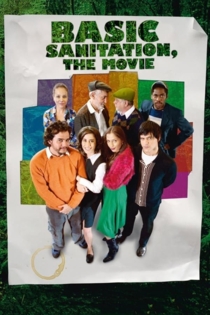
Mussum: Um Filme do Cacildis
Susanna Lira
Lázaro Ramos, Mussum
The trajectory of musician and comedian Mussum as vocalist of the group "Os Originais do Samba" and later in cinema and TV as a member of "Os Trapalhões", a group that revolutionized the way of making humor on Brazilian television.
Mussum: Um Filme do Cacildis

What Is It Worth?
Sérgio Bianchi
Danton Mello, Leona Cavalli
Free adaptation of Machado de Assis's short story "Pai Contra Mãe", having some of Nireu Cavalcanti's 18th Century chronicles as inspiration, the film traces parallels between life in during the slavery period and in modern Brazil.
What Is It Worth?
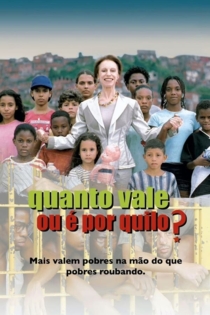
Madame Satã
Karim Aïnouz
Lázaro Ramos, Marcélia Cartaxo
A story inspired by the life of one of the most remarkable figures in Brazilian popular culture, João Francisco dos Santos (1900-1976). In turn, bandit, transvestite, street fighter, brothel cook, convict and father to seven adopted children, dos Santos – better known as Madame Satã – was also a notorious gay performer who pushed social boundaries in a volatile time.
Madame Satã

Pitanga
Camila Pitanga, Beto Brant
Antônio Pitanga, Camila Pitanga
This documentary investigates the aesthetic, political and existential trajectory of emblematic Black Brazilian actor Antônio Pitanga. He career spans over five decades, and he has worked with iconic Brazilian filmmakers Glauber Rocha, Cacá Diegues and Walter Lima Jr. He was a prominent figurehead and outspoken activist during the Brazilian dictatorship, a period of unrest in Brazilian cinema. Pitanga deep dives into the world of Antônio and the history of Brazil. The documentary was directed by his daughter Camila Pitanga, one of widely recognised faces in Brazilian television and cinema right now. The film is also a poem, and a tender ode to fatherhood.
Pitanga
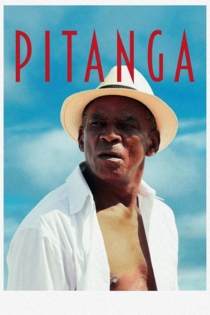
Tudo Que é Apertado Rasga
Fábio Rodrigues Filho
Antônio Pitanga, Antônio Pompêo
What does Brazilian cinema tell us? What does Brazilian cinema tell us about black actresses and actors? ‘Pressed, Ripped Apart’ makes use of archival sources to retrieve the trajectory of black actresses and actors who, between absences and delimited presences, between the fallacy of a racial democracy – based on the harmony among Brazil’s diverse identities – and erasure of identity, strain the history of Brazilian audiovisual and above all, our own history.
Pressed, Ripped Apart
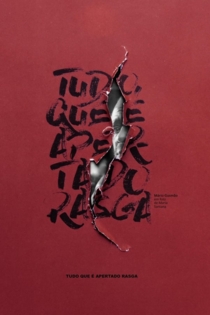
Tudo Que Aprendemos Juntos
Sérgio Machado
Lázaro Ramos, Sandra Corveloni
Laerte, a talented violinist who after failing to be admitted into the OSESP Orchestra is forced to give music classes to teenagers in a public school at Heliopolis. His path is full of difficulties, but the transforming power of music and the friendship arising between the teacher and the students open the door into a new world.
The Violin Teacher

Mundo Cão
Marcos Jorge
Babu Santana, Lázaro Ramos
São Paulo, 2007. Santana works as a dogcatcher, picking up stray animals. He is a friendly guy, averse to trouble, who has always kept violence away from the doorsteps of his home. One day, he catches a very big dog in a school. Some days later, comes the animal's owner: Babyface, a sociopath ex-cop. The man is furious, considering his dog to be "kidnapped", and demands immediate restitution of his pet. But the dog is not coming back: according to the law, the animal was put to sleep. In a misunderstanding, Babyface argue with Santana, blaming him for his pet's death. From this moment on, Santana's life will be completely changed.
In Dog's Words
